Circular economy is important, but not enough for sustainable packaging
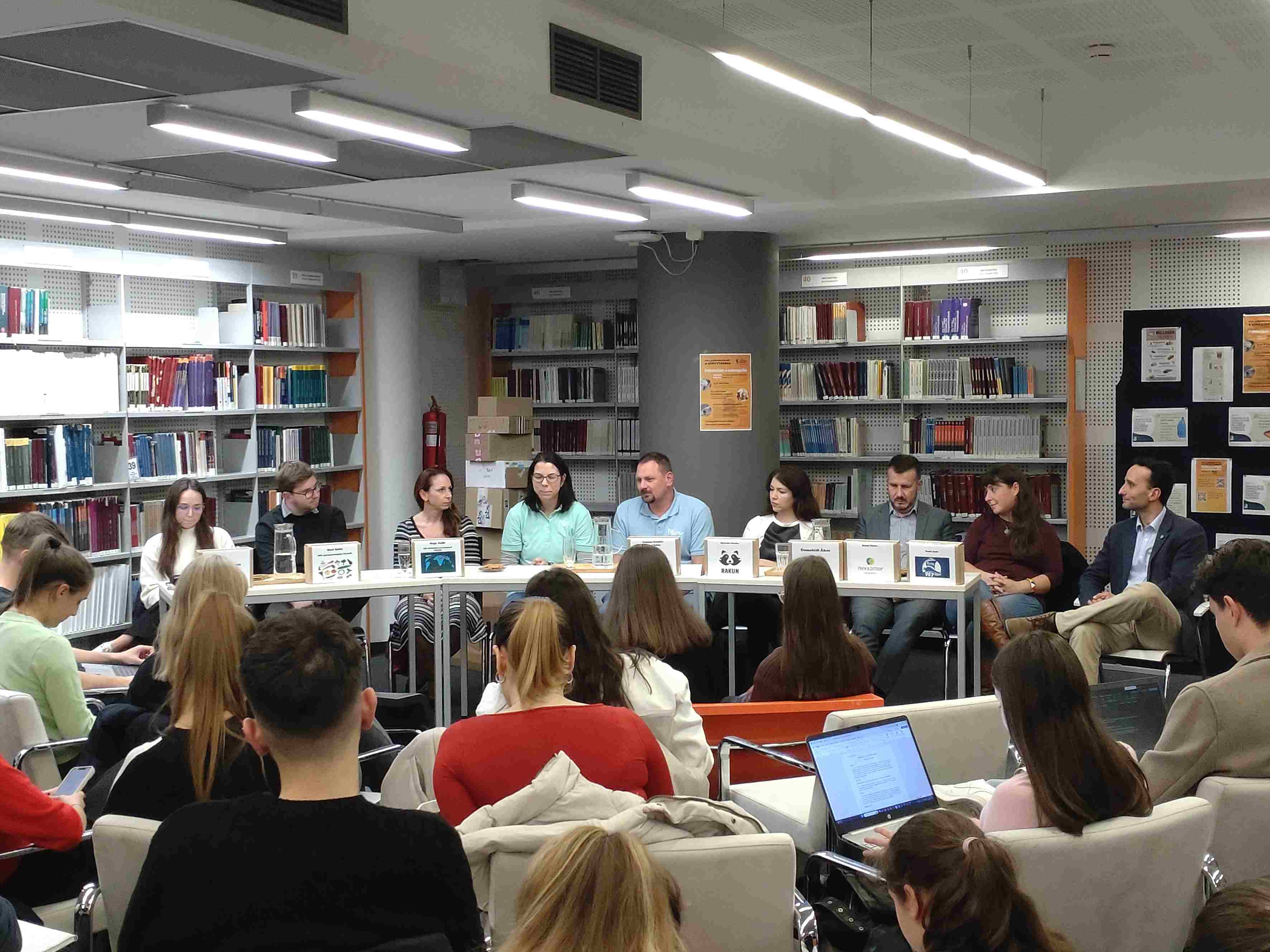
According to EU statistics, in 2021 on average 189 kilograms of packaging waste per EU resident was produced. This means a total of 84.3 million tonnes of packaging waste in 2021, 4.8 million tonnes more than a year earlier. This large amount of waste has a serious environmental cost, and once in the environment, it causes serious ecological damage.
That is why packaging has become the main focus of this year’s European Week for Waste Reduction, to which Corvinus Library also joined. The organisers have also set up awareness-raising box installations and organised a bag and natural cosmetics making workshop, a film screening, a photo exhibition and a roundtable discussion.
At the workshop, the participants could make bags out of t-shirts that were no longer in use with the assistance of volunteers of the Profilantróp Association. Students visiting the Library could use them for books if do not fit in their bags. And with the founders of Mosómami Ecomanufactory fragrant bath salts have been produced, among other things.
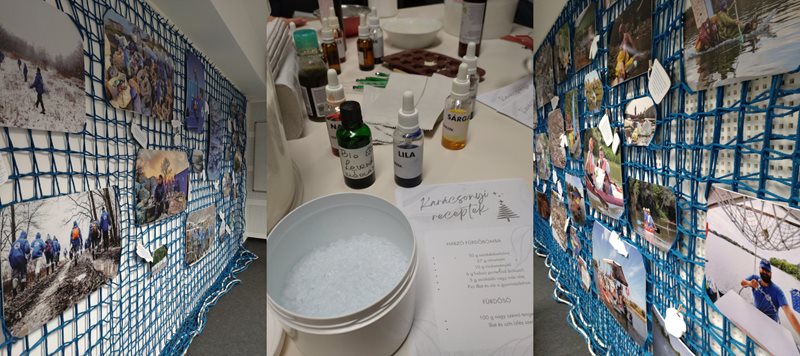
The photo exhibition presenting the PET cup was opened by Ákos Domahidi, Chancellor of Corvinus University. In his speech, he praised the success of the grassroots initiative achieved so far, highlighting in particular how difficult it is to change our habits and way of thinking. To do this, as he puts it, “you always need a clear, visible and measurable goal that you can show the community at the end of the year and say, yes, this is your impact.” Through these figures, the aggregate impact of many small individual actions can be presented.
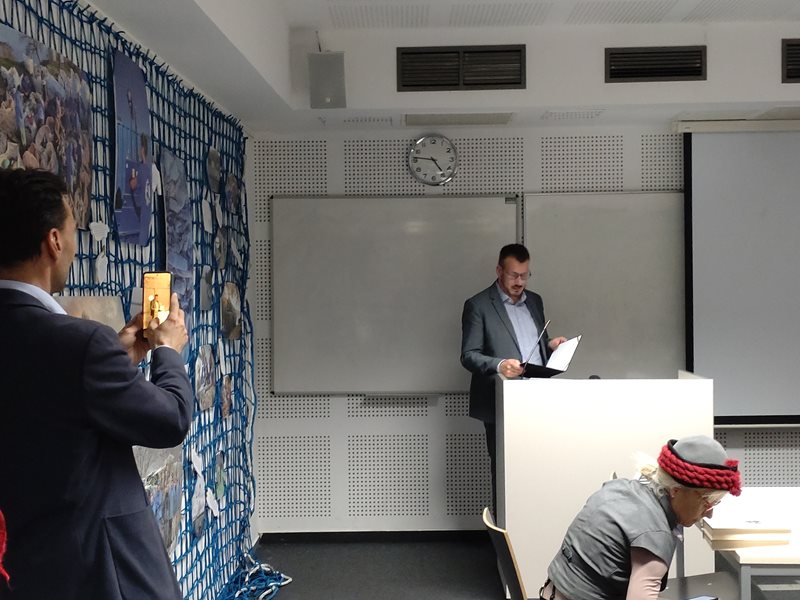
You cannot banish packages completely, but it is important what to use, how much and how
Maró Zalán also encountered the packaging problem at the Corvinus Farmers’ Market, which was revealed during the roundtable discussion organised at the Library. Most recently, e.g., one hundred Corvinus canvas bags were distributed for customers to take home the products, but many had already come with their own bags.
However, it is not realistic to reduce packaging to zero, as Judit Nagy, Associate Professor at Corvinus Department of Supply Chain Management put it. “Some packagings are necessary, because they either protects the product or they protects the environment from the product,” she said during the discussion. “However, it is not all the same how we package, what materials we use and what happens to that packaging after use,” she added.
This can also have an impact on consumers. “Consumer choices have a lot to do with living in a better and greener world,” said Krisztina Radnainé Sitkei, founder of the MosóMami Ecomanufactury. They are, e.g., increasingly supplying more and more zero-waste shops with their products, although they were initially seen as eco-hipsters.
The demand is coming more and more from the consumer side, so they are also trying to find an appropriate solution. They use materials that are made from safe raw materials and give preference to biodegradable packaging with the assistante of Humus Association. A third option is to use waterless products such as traditional soaps, because they require less packaging.
Transporting food is also a problem when it comes to packaging. Rakun Box Community sought solution for this under the leadership of Sarolta Horvátth, their returnable steel cans are becoming available to customers in more and more restaurants. They also cooperate with the Felelős Gasztrohős (Responsible Gastro Hero) foundation to further reduce the environmental impact of meals.
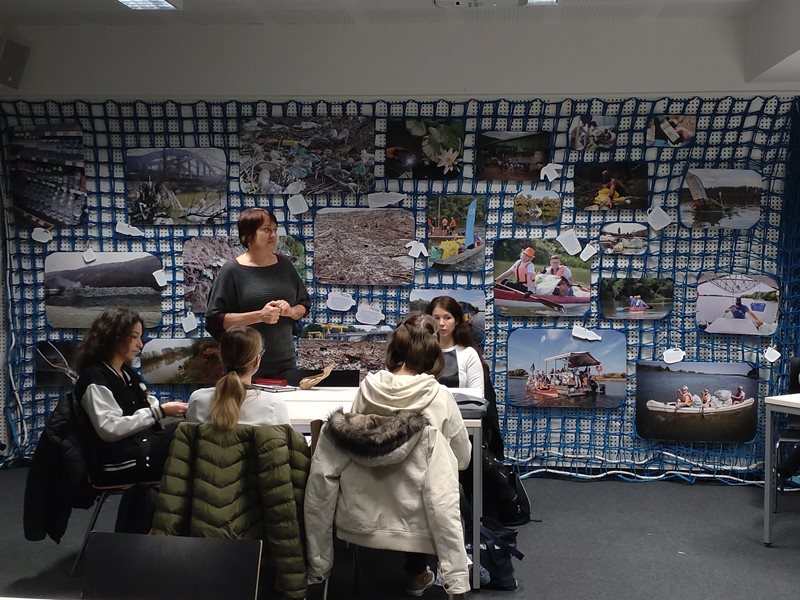
Can circular economy be the solution?
While these initiatives save the planet from large amounts of waste, we also need to do something about the packaging that is eventually produced or have already been released into the environment.
In the Profilantróp Association’s Donation shop e.g., several tons of waste were saved from becoming waste, as Zsuzsa Mester, a staff member of the association told us. “However, donating is not the ultimate solution, because there are many more clothes than we would really need. In nature, two things are missing: waste and unemployment,” she added, referring to the fact that in nature, the end product of every process is also the beginning of another process.
This concept of a circular economy is becoming increasingly common, however, there are also concerns. E.g., plastic waste starts to break up into bits when it gets into the water, according to Zsolt Tamás, the organiser of the PET Cup, and sooner or later microplastics will penetrate into drinking water – although true, so far, potable water has shown significantly less contamination compared to bottled mineral water. The PET Cup is working with 400-500 volunteers to clean up River Tisza and its tributaries from the massive plastic pollution that comes with the sediment.
70 per cent of the waste caught can be recycled, but the rest is made from a type of plastic that cannot. In addition, Zsolt says that endlessly recyclable plastics are also not perfect. During recycling, the water used for cleaning also contains microplastics which are very difficult to filter out. The best solution, he says, would be not to produce the plastic at all. “Buy what you need and don’t buy what you don’t need. What you buy affects the manufacturer,” he added.
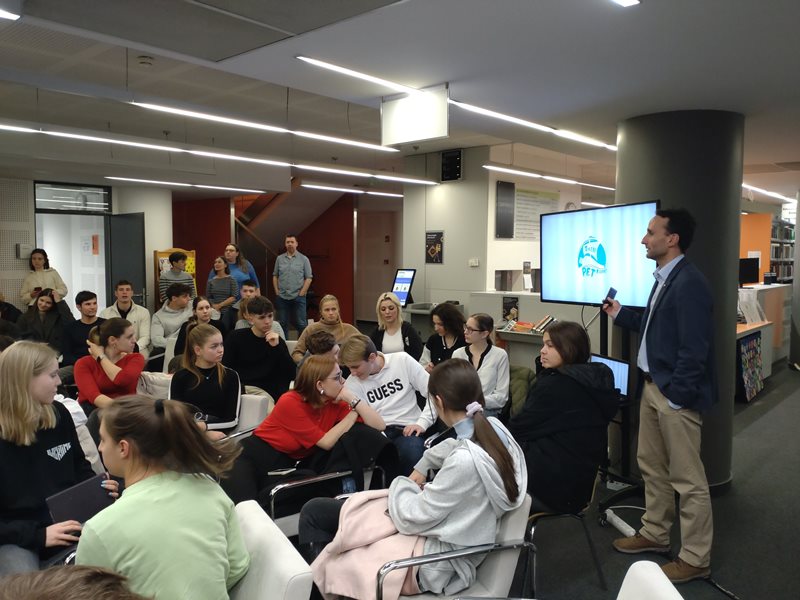
Individual action and circulation: is it really all up to us?
“What we expect from companies, they will perform, so consumer practice matters”, said Judit Nagy, but she also added that the responsibility of companies should also be emphasised. This was confirmed by Zsolt Tamás too, who said that there are plenty of products where there is no realistic alternative available to consumers.
Companies can create these alternatives, which can later even be a competitive advantage. Zsuzsa Mester, e.g., talked about packaging that is completely made of mushroom threads and she believes that these innovations, which mimic nature, could be of key importance. “This requires the intention of big companies too. Sometimes we put too much burden on ordinary consumers and people. You have to be very conscious, but the manufacturer side has the biggest responsibility.”
In addition to responsibility, there is also the business aspect. Ákos Domahidi, Chancellor of Corvinus, highlighted the economical aspects of sustainable initiatives alongside the ecological aspects. “Economic rationality is an existing thing, it influences our decisions. We need to look for solutions that make economic sense for consumers and businesses alike”.
An example of this, he says, is also the initiative that Corvinus has fully phased out the purchase of bottled water by 2023. Instead, water filtering machines have been installed which cost 20 per cent less to maintain and service than the previous order. Corvinus not only reduced its environmental impact, but it has also achieved financial savings.
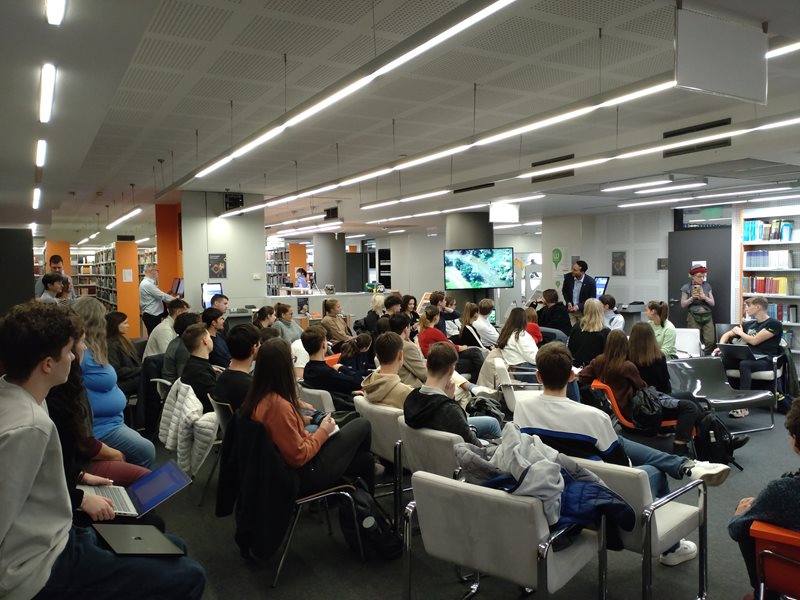
The future also depends on what students take with them from the education system
At the end of the discussion, the role of education was also put on the agenda, with participants saying that university students will not only be consumers, but also the workers and leaders of the future.
E.g., Rakun participated, together with Science Shop, in a joint project, which is how they were later approached by a student who had started working for a company organising football matches. They held an environmental thematic day, where they invited Rakun too, and through this they managed to reach many new people, according to Sarolta Horvátth.
The aim of the Farmers’ Market was not necessarily to change mindsets, but to provide an alternative too. “Before the market, we have done a research, which showed that many students are either unaware of these short supply chains or markets are far away from them,” said Zalán Maró. So their aim was to bring these producers closer to the students.
As for the future, participants agreed that there is hope and that the next generation will have a big role to play. “This is an important topic for many young people. They understand that this is their future. Nature will be just fine without us, the question is what will happen to us”, said Zsuzsa Mester, then added with a laugh: “The big achievement will be when you no longer have plastic bags full of another plastic bags in them.”
Krisztina, representing MosóMami, agreed with this, but she also believed that the overall approach needs to change. “In a finite world there is no infinite growth, sometimes it would be enough to be satisfied with what we have,” she added. Hope lies in global thinking and local action in her view.
The PET Cup is one such local action: it has been organised from the grassroots for years, with increasing success. “We are now at the point where people are paying to go and pick up waste in the floodplain. To finally be a bit muddy, to move out of their comfort zone,” said Zsolt Tamás.
The example of others is also a local, grassroots initiative, whether it is sustainable cleaning and sanitation products, a donation shop, steel takeaway boxes or even a farmers’ market at the university. And the network of initiatives will mean our future on planet Earth, in which we will all have a stake.